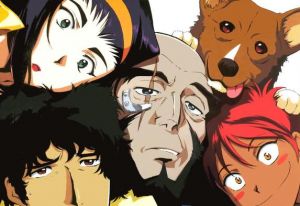Comics /
Spotlight
Learn to Write About Comics – Part Two
By Hervé St-Louis
September 18, 2012 - 09:10
In our first article in this series about writing about comic books, I highlighted that writers have to be consistent when picking an English variation to write and I discussed how writing with an assumption that the reader is new to comics helps write clearly. Another thing that can often confuse readers when they read articles about comic books or any other fields where there’s some form of knowledge and learning curve needed is slang.
The first type of slang is based on locality. About 75% of readers who come to
ComicBookBin are from North America where we are all familiar with the same idiomatic expressions. The other 25% most likely does not speak English as a first language. Many of our readers from North America also have another language as their first. Slang creates familiarity which can be good, but also makes it difficult for people outside of the club to understand the meaning. As a writer, the last thing you want to do is exclude readers from reading your articles.
Always use proper words, not shortened versions. The only alliterations we can use at ComicBookBin are negative verbs like “don’t, didn’t, couldn’t.” For everything else we (in theory) use proper English. Slang Abbreviations, used in message boards or symbols, like “lol” “:)” or “IMHO” should never be used in any article.
Avoid swear words or personal comments - try to get to the point! Avoid catch phrases like “get to the point”. Instead describe directly what is you want to say in clear words. Remember, catch phrases are not universal.
Try to focus on the book and not use too many expressions such as “in my opinion, it’s jumping the shark” and so on. Although colloquial expressions are fun, they sometimes make an article difficult to follow.
Industry Slang
Avoid words like DCU, NU52, retcon, games, con, trade, Marvel, DC, Image, Dark Horse Supes, Bats, Spidey, figure. Instead, use the correct words such as DC Universe, the New 52 retroactive continuity, video games, convention, trade paperback, Marvel Comics, DC Comics, Image Comics, Dark Horse Comics, Superman, Batman, Spider-man, action figure. The word “comics” is particular. Many people prefer to use the word comics instead of comic book. Comics really refers to a whole art form which includes printed comic books, digital comic books Web comics, graphic novels and more. When speaking about a printed comic, it’s preferable to use comic book to differentiate from all comics. When talking about comic books as an art form or in a scholarly context, use the word “sequential art.”
I have done some research about the words manga and animé. Some people prefer to capitalize the first letter of each word; some prefer to treat them as common nouns. We will use treat them as common nouns and not capitalize them. Animé does not require a “é” if it’s not available on your keyboard. It can be written as anime.
Don’t refer to comic book supporters as fans or fan boys. Use the word comic book readers, comic book enthusiasts or collectors.
Numbers
All numbers under twelve, unless they are issue number for book, say Moon Knight # 6 instead of “six,” should be spelled out completely. For example, use “This twelve-year-old boy bought a Green Lantern # 5 comic book the other day,” instead of “This 12-year-old boy bought a Green Lantern # 5 comic book the other day.” You’ll notice however, that the # 5 in Green Lantern # 5 was not spelled out. Spell out volume numbers, but avoid spelling out individual issues of comic books. For example, do write the Collected Peanuts Volume One but continue writing The Amazing Spider-man # 579. When dealing with multiple volume comic book series, write Archer and Armstrong Volume One issue #6.
These rules, I have to specify are not universal to all magazines, although many, are similar to journalism guide in other publications. Some publications will favour spelling out numbers from one to ten only. Some will prefer to use Archer and Armstrong Vol. 1 issue 1 instead. In our next article, we will look at how comics are reviewed at ComicBookBin.
Last Updated: August 31, 2023 - 08:12
